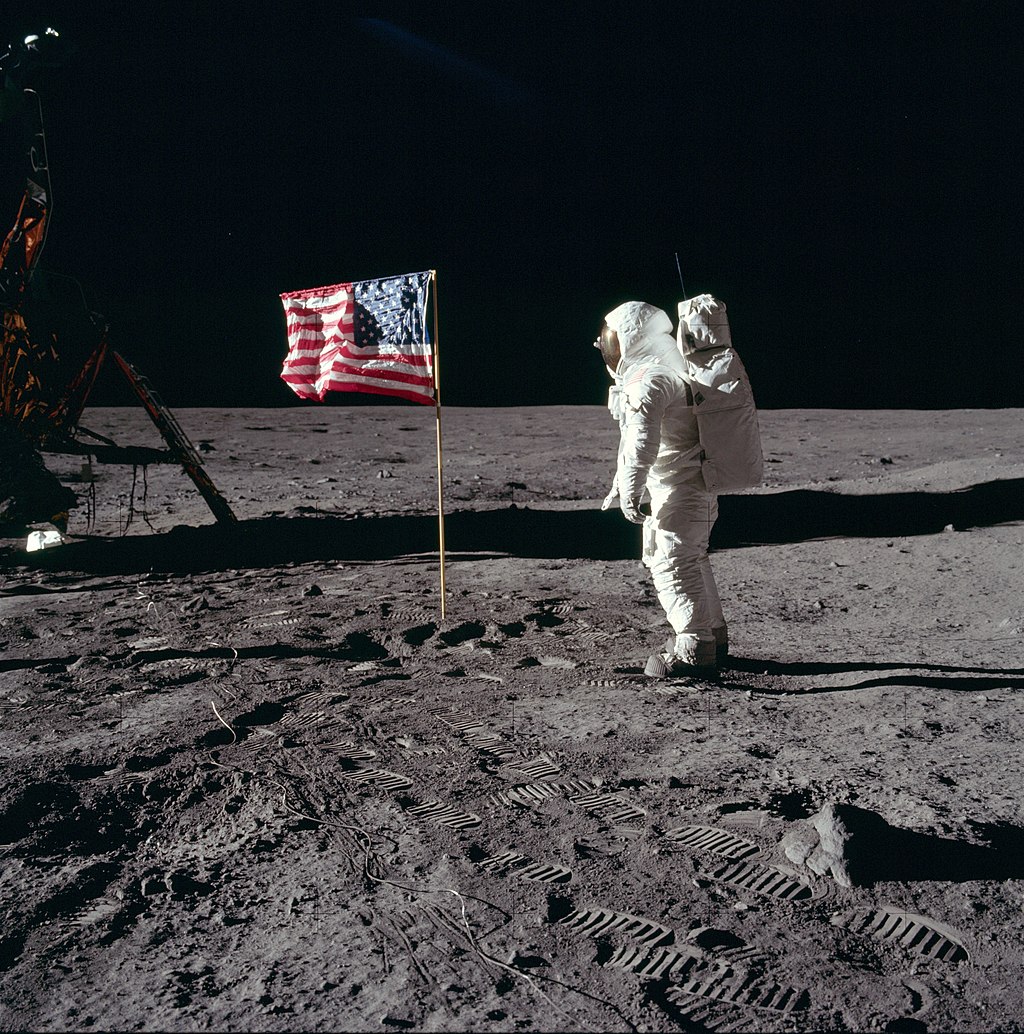At 02:39 UTC on Monday July 21, 1969, Armstrong opened the hatch, and at 02:51 UTC began his descent to the lunar surface. The Remote Control Unit controls on his chest kept him from seeing his feet. Climbing down the nine-rung ladder, Armstrong pulled a D-ring to deploy the Modular Equipment Stowage Assembly (MESA) folded against Eagle's side and activate the TV camera, and at 02:56:15 UTC he set his left foot on the surface. The first landing used slow-scan television incompatible with commercial TV, so it was displayed on a special monitor and a conventional TV camera viewed this monitor, significantly reducing the quality of the picture. The signal was received at Goldstone in the United States but with better fidelity by Honeysuckle Creek Tracking Station in Australia. Minutes later the feed was switched to the more sensitive Parkes radio telescope in Australia. Despite some technical and weather difficulties, ghostly black and white images of the first lunar EVA were received and broadcast to at least 600 million people on Earth. Although copies of this video in broadcast format were saved and are widely available, recordings of the original slow scan source transmission from the lunar surface were accidentally destroyed during routine magnetic tape re-use at NASA.
After describing the surface dust as "very fine-grained" and "almost like a powder," Armstrong stepped off Eagle's footpad and uttered his famous line, "That's one small step for [a] man, one giant leap for mankind" six and a half hours after landing. Aldrin joined him, describing the view as "Magnificent desolation."
in Wikipédia





Sem comentários:
Enviar um comentário